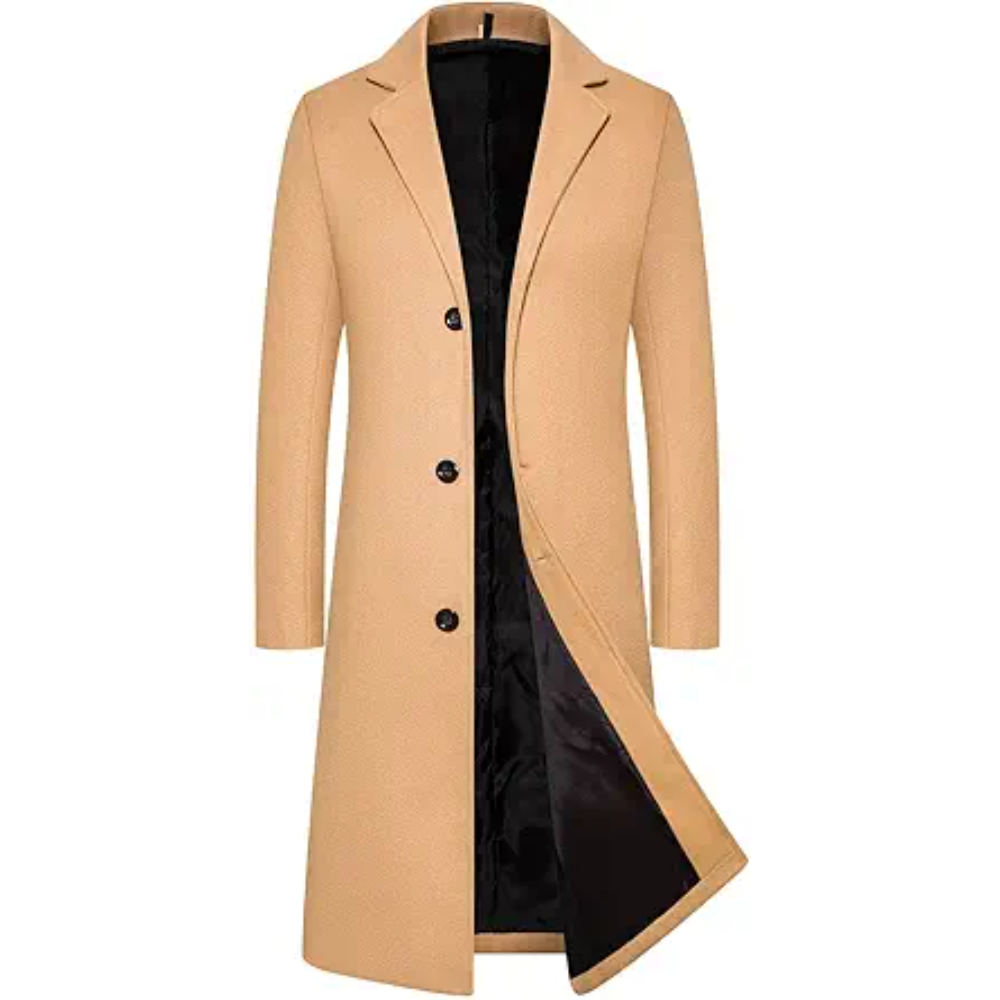A trench coat is a timeless and versatile piece of outerwear known for its classic design and practical features. Here’s a detailed description of a trench coat:
Material:
- Fabric: Traditionally made from cotton gabardine, a durable and weather-resistant fabric. Modern versions can also use materials like polyester or blends for enhanced performance.
Design:
- Style: Typically a medium to full-length coat with a tailored silhouette, characterized by its double-breasted front and wide lapels.
- Shoulder Epaulettes: Decorative shoulder straps or epaulettes add a military-inspired touch.
- Belted Waist: Includes a self-tie belt at the waist, often with belt loops and a buckle, allowing the coat to be cinched for a flattering fit.
- Sleeves: Long sleeves with adjustable straps at the cuffs, typically with buckles or buttons.
Details:
- Storm Flap: A fabric panel that covers the shoulders and upper back, providing additional protection from rain.
- Gun Flap: A feature on the front of the coat, originally designed for functionality but now often decorative.
- Back Vent: Allows for ease of movement and ventilation, often secured with a button or adjustable strap.
Color:
- Classic: Traditionally seen in khaki, beige, or stone colors, reflecting its military origins. Modern trench coats also come in black, navy, and various other hues.
Usage:
- Functionality: Originally designed as a raincoat, offering protection from the elements with its water-resistant fabric and design features.
- Fashion: Evolved into a stylish and versatile outerwear piece suitable for both formal and casual occasions.
- Layering: Can be worn over suits, dresses, or casual attire, adding a polished and sophisticated touch to any outfit.
Fashion:
- Timeless Appeal: Trench coats have remained popular for decades, transcending trends with their classic design and practical functionality.
- Unisex: Designed for both men and women, with variations in cut and style to suit different body types and fashion preferences.
Maintenance:
- Care: Requires proper care to maintain its water-resistant properties and appearance. Regular dry cleaning or spot cleaning with a damp cloth is recommended, depending on the fabric type.




